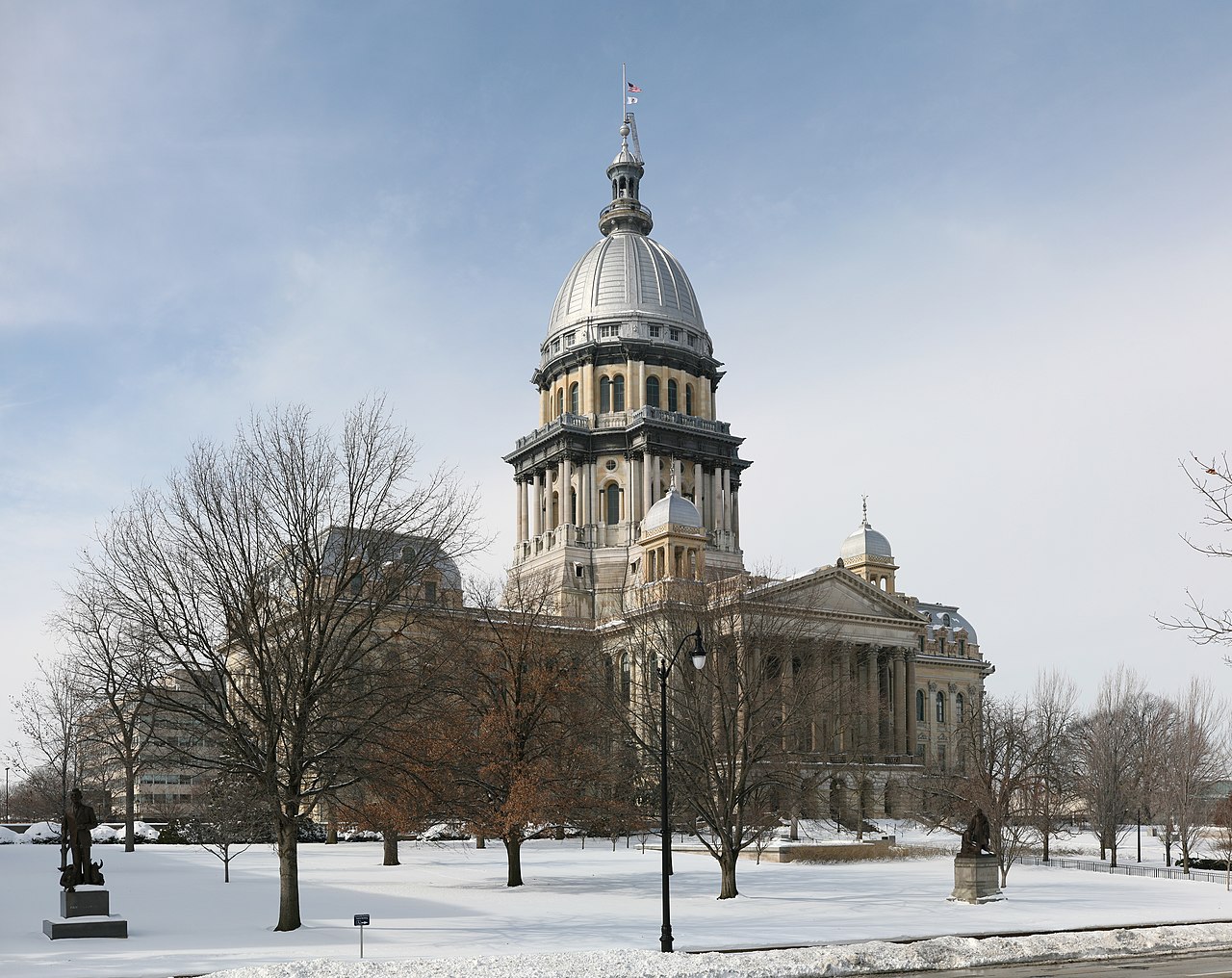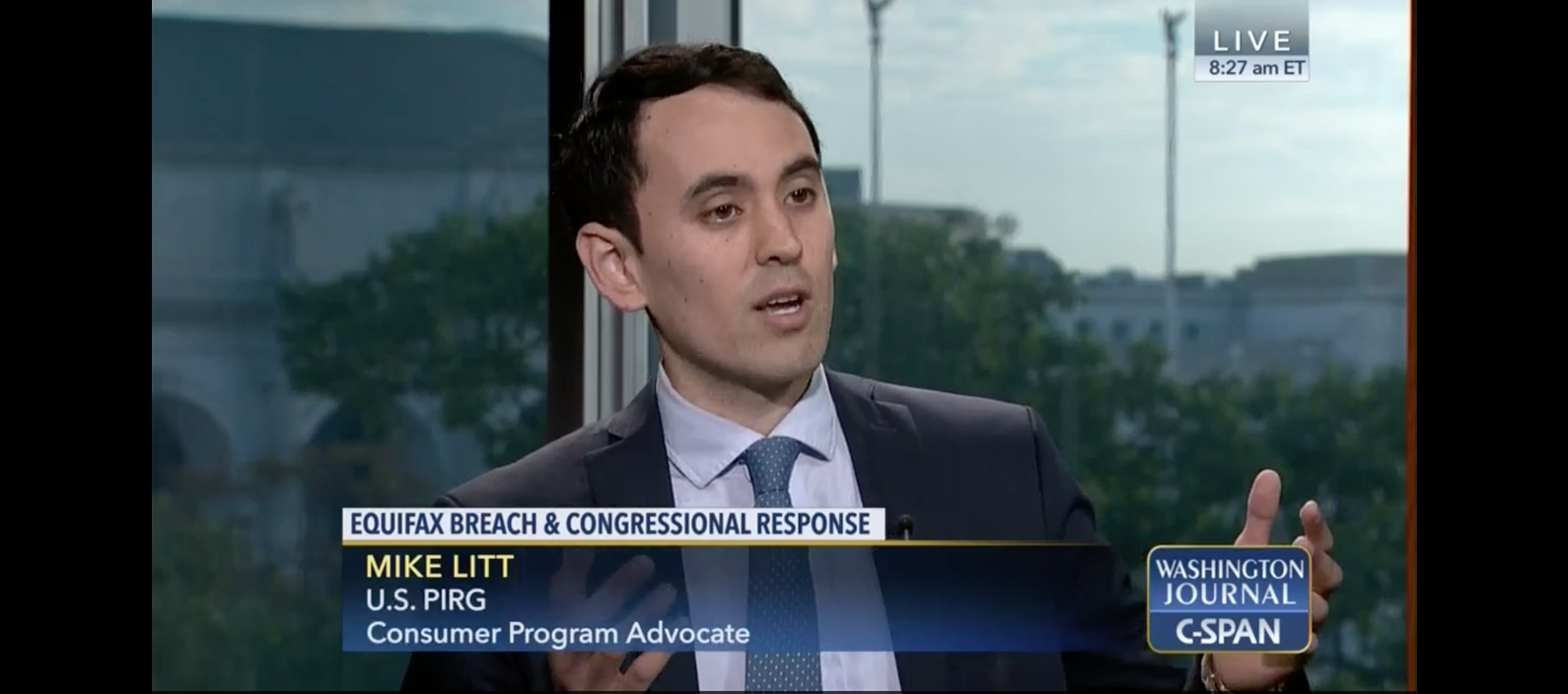
In the Wake of Equifax: Tips for Consumers and Calls to Action
On Sept. 7, 2017, the American public learned that hackers had struck Equifax, a credit reporting agency, compromising the personal information of 145 million Americans.

The stolen data includes names, Social Security numbers, birth dates, addresses and some driver’s license numbers.
Since then, our advocates, both nationwide and at the state level, have worked to inform consumers about what they can do to protect themselves, and to persuade Equifax, Congress and state lawmakers to take stronger action in response to the breach.
U.S. PIRG Consumer Advocate Mike Litt created a list of tips for consumers for how to protect their personal data, along with answers to frequently asked questions. Additionally, Litt, our Consumer Team’s Digital Campaigner Kathryn Lee, and Frontier Group Policy Analyst Gideon Weissman created an interactive map of the cost to consumers to freeze and thaw their credit reports by state.
A credit report “freeze” is the industry’s term for making a credit report inaccessible to any party. If a hacker tries to open a new line of credit using data stolen from a frozen report, the credit will be denied. A “thaw” means that the freeze is lifted, so the consumer can open a new line of credit. As Litt told media outlets, including during an interview on C-SPAN, credit freezes can offer consumers effective protection, but only if they’re done at all three of the major credit reporting agencies — Equifax, TransUnion and Experian.
U.S. PIRG and our state affiliates called on Equifax to provide consumers with free credit monitoring and free credit freezes for life across all three credit reporting bureaus.
In the first days after the breach became public, Equifax offered its credit monitoring services free to consumers for just one year — a service that would only alert consumers to fraudulent activity after it has occurred. Worse, stolen information doesn’t have a shelf life, meaning consumers who have had their data stolen are at risk for much longer than one year.
U.S. PIRG also informed consumers that Equifax only offered its “credit report lock” (similar to a credit freeze) for Equifax reports, and not for the other two agencies, leaving consumers to pick up the tab to keep their personal data safe. According to our research, if all consumers in states where fees are charged to freeze their credit reports did so today, at all three agencies, it would cost them an estimated $4.1 billion.
What’s more, Litt told The Washington Post that the initial offers from Equifax to victims of the breach came with a catch: “signing away your right to a day in court in the future” — referring to the “mandatory arbitration” clause that requires the consumer to revoke our right to join a class-action lawsuit in favor of arbitration proceedings.
Consumers deserve a better response from Equifax. That’s why our consumer team pressed the company to do more. As Litt told CNBC, “We don’t get to choose them collecting and selling our information — and, in the case of Equifax, losing it — and we have to pay a fee to protect it?”
Our consumer team also asked Congress to immediately pass the Freedom from Equifax Exploitation (FREE) Act. The FREE Act, introduced by Sens. Elizabeth Warren (Mass.), Brian Schatz (Hawaii) and others, would make credit freezes free for all consumers.
In the states, PIRGs are also advocating for legislation. Currently, only four states (Indiana, Maine, North Carolina, and South Carolina) provide free credit freezes and free thaws/lifts, and four other states provide free freezes but charge for thaws.
Illinois PIRG State Director Abe Scarr is working with legislators to pass a bill that will make credit freezes free for all Illinois residents. As Scarr said in a press release, “We look forward to working with legislators from both parties to ensure Illinois residents have free access to this critical tool to protect their financial well-being.”
MASSPIRG Legislative Director Deirdre Cummings has championed An Act Removing Fees for Security Freezes and Disclosures of Consumer Credit Reports.
And in California, CALPIRG Executive Director Emily Rusch will be a consumer advocate on a panel for a joint informational hearing held by the Assembly Banking and Privacy Committees, a hearing that will likely lead to legislation for free credit freezes in California.
Meanwhile, Litt has appeared on C-SPAN and has been quoted in The Washington Post, CNBC, CNN Money, The Chicago Tribune, Fox Business and more. Our veteran Consumer Program Director Ed Mierzwinski has been quoted in NBC News, CBS MoneyWatch, and the San Francisco Chronicle. Together, we’ve reached thousands of Americans with accurate information and calls to action. We’ve also collected tens of thousands of signatures telling Equifax to do more for consumers.
Moving forward, we will continue our long history of advocating for greater consumer protections for all Americans. For more information, see our tips on what to do after the breach here. To tell Equifax to do better, sign U.S. PIRG’s petition here. And you can tell Congress to pass the FREE Act here.
Topics
Find Out More


A look back at what our unique network accomplished in 2023

Mastercard, don’t sell my data

